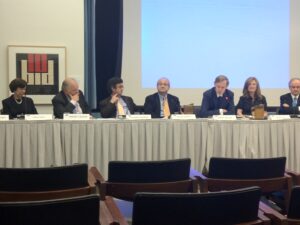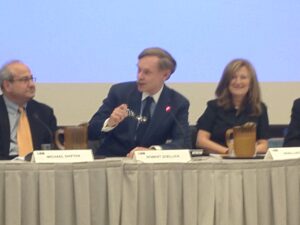1. With the theme of ” BRICS and Africa -partnerships for integration and industrialisation” the BRICS Summit will spend a whole day in interaction with NEPAD on African development and BRICS support for African regional integration.
2. A BRICS Bank will be launched, agreed in some detail apparently. Capital will be equal shares of $10bn, much less than original proposal, thus avoiding complex negotiations. South Africa is offering to host it, still under negotiation, which again may avoid complex negotiations on location and recognise Johannesburg as a world class financial market capable of managing international bond issues for the BRICS Bank. The original concept was advanced by India last year, as a direct challenge to the World Bank, and although that dimension has been toned down it is still there. Some people here in South Africa do not see that Africa needs another development bank. Nevertheless the existence of a BRICS Bank will no doubt send a important signal about the role of the BRICS Summit process as a part of the emerging global governance system, and it will give the BRICS clout as highly sought-after co-financers.
3. A currency swap safety net of $240 bn will be concluded, reducing the need for IMF credit lines.
4. A BRICS Business Council with 5 members from each country will be established, developing sectoral programmes and events, including agriculture, to work alongside the BRICS Bank
5. A BRICS Think Tank system was put in place last week at an academic forum in Durban, with the dedicated think tanks from each country signing a joint declaration.
6.The BRICS Trade Union Forum is to be established as a permanent organisation. President Zuma will give the opening address tonight (Saturday 23 March).
7. NEPAD and Oxfam are jointly orgainising a Public Policy Forum ahead of the Summit on Monday 25 March, under the auspices of the African Platform for Development Effectiveness (the African Busan Platform).
8..A CSO “BRICS from Below” counter summit has been formed, positioning itself as a watchdog, which will operate during the next week.

